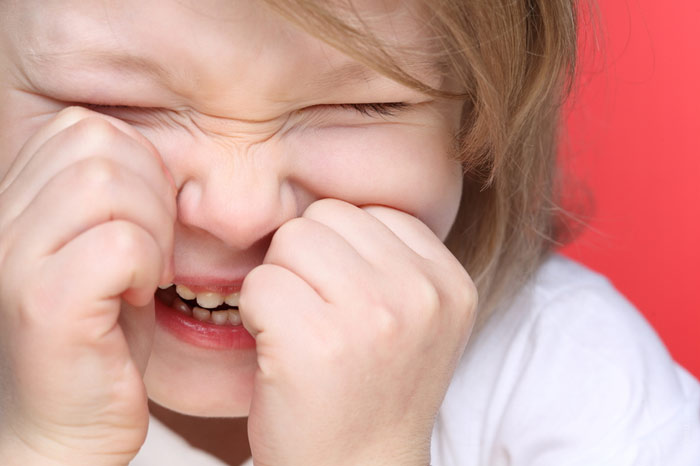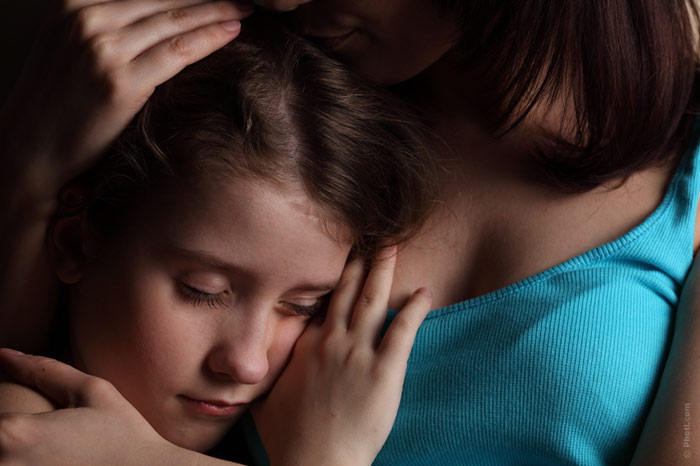11 Parents’ Mistakes That Make Kids Tolerate Violence
How to raise children so they do not become victims of violence or rapists in the future? Don’t do things that evoke tolerance to violence! Don’t do what many parents are doing…

Why is it important that children should be aware of the markers of violence? When your daughter starts dating men, she simply won’t notice that she is treated badly because she has been treated like this for the whole life! And when your son starts dating women, he will not understand that he behaves in an ugly way because he hasn’t learnt to respect personal boundaries.
The children whose personal boundaries were not respected and whose interests were disregarded have great chances to become a part of unhealthy, dysfunctional relationships in their adult life.
Here is an overview of parental habits preventing children from understanding what is acceptable and what is not.
1. Blamestorming
Your child is hurt. You keep saying things like “Why did they beat you? What did you do? Why did the teacher shout at you? Why did you take his car? You shouldn’t have spoken at the lesson!”
Why is it dangerous? The child is taught to see himself/herself as the cause of other people’s unworthy behavior. In the future this may lead to the fact that the woman will sincerely believe that it is she who provokes her husband, and he will know that he can beat her if she does something wrong.
The one who practices violence should always take responsibility for it. Unworthy behavior has no justification.
2. “Think of the good side!”
The child does not like it in the extracurricular club he or she attends? She likes gymnastics, but she dislikes the girls in her group. He likes the fight, but the boys tease him. You say, “Think about the good side! You love gymnastics! The grandmother laughs at you, but she loves you!”
What is the danger? In future relationships, the child may ignore the unworthy attitude to himself/herself.
At least he doesn’t drink! At least he doesn’t beat you! At least he loves you, plays with the children and changes their diapers, brings money, etc.
3. “You’re imagining!”

The child says that you hurt their feelings, and you tell them that they are imagining – he or she is your beloved child, you can’t hurt them.
What is the danger? The child learns not to take into account their feelings, but is guided by the feelings of others.
“What do you mean, you’re my beloved wife, how could I cheat on you, how could I lie to you?!” – do you want your daughter’s future to be like that?
Besides, denying the child’s feelings, you are teaching them not to trust themselves. And then, you’re your daughter gets into a trouble in her own family, she will hear, “How could you not notice!”
The danger is also in that the child will not learn to respect the feelings of the loved ones; he or she will make them suffer.
4. “Come on, I love you!”
Or “Come on, it’s your grandpa!” The child asks to let them go, not to hug or kiss them, but they hear, “I’m your daddy, I love you, I want to kiss you!” The same thing is when you come to visit you parents and force the child to kiss grandma and grandpa when he or she is unwilling to.
What is the danger of coercion? Do you want your daughter to give in at the age of 14 when some overgrown jerk will start telling her, “Come on, I love you”? And she’ll give in because it is exactly like her father behaved with her. Do you want your 20-year-old son be jailed for rape because he thinks that “no” in response to an attempt to kiss means nothing, and he didn’t stop?
The child’s right to bodily untouchability is sacred. Let go means let go. No means no. Learn to say “no”. Learn to stop in response to “no”.
5. “He didn’t want to hurt you!”
What is the danger? Justification of violence. The child will look you in the eye saying “I didn’t mean to offend!” and continue offending. He or she will think that if someone did not mean to offend, it seems indecent to get offended.
6. “He’s just a boy!”

What is the danger? The normalization of men’s violence against women.
7. “I’ll spank you!”
The danger is obvious: beating is all right, force is the best argument. You have to listen to the one who beats. To succeed, you have to beat.
8. “He likes you!”
“Mom, why Max is always nagging at me?”
Please, bite your tongue and don’t say that horrible “because he likes you”. Do you really think that’s true? Is he nagging at her because he likes her? Or wants to play with her? Again, no.
A boy hurts a girl not because he likes her! And not because he wants to play with her! He does it because he can’t say directly that he wants to play with her, cannot properly express his liking.
What is the danger? Girls get used to the fact that “beating means loving”, and boys get used to expressing their affection through humiliation, but not through care, respect and good words. That is, someone can nag at you and offend you, if they like you – no need to draw attention to the fact that you feel bad about it.
9. “And you tell him..!”

Does it happen that you comment on the conversations of the child with other people? Does it happen that you give your child tips what to say when he or she didn’t ask for it?
If yes, then stop. After all, your child’s partner in adult life can also do like that. Your son or daughter will just not understand which behavior is unacceptable. And often, psychological violence in families starts from the attempt to control your spouse’s communication.
10. “What is it you are wearing?”
If you regularly make critical comments about your child’s appearance and clothing, they will get used to the fact that discussing the appearance of other people is normal.
In the future your daughter will not understand that her partner is behaving terribly towards her, criticizing her body…
11. Excessive politeness
A drunkard is bothering you in the tram? Someone is being rude to you in the store? A teacher or an older relative teaches you how you bring up your child (in their presence)? You are well brought up, you don’t want any conflicts, you’re afraid to be rude – and you’re just smiling silently.
Your child looks at you and learns to smile in response to the violation of his/her personal boundaries, without even trying to defend them.
